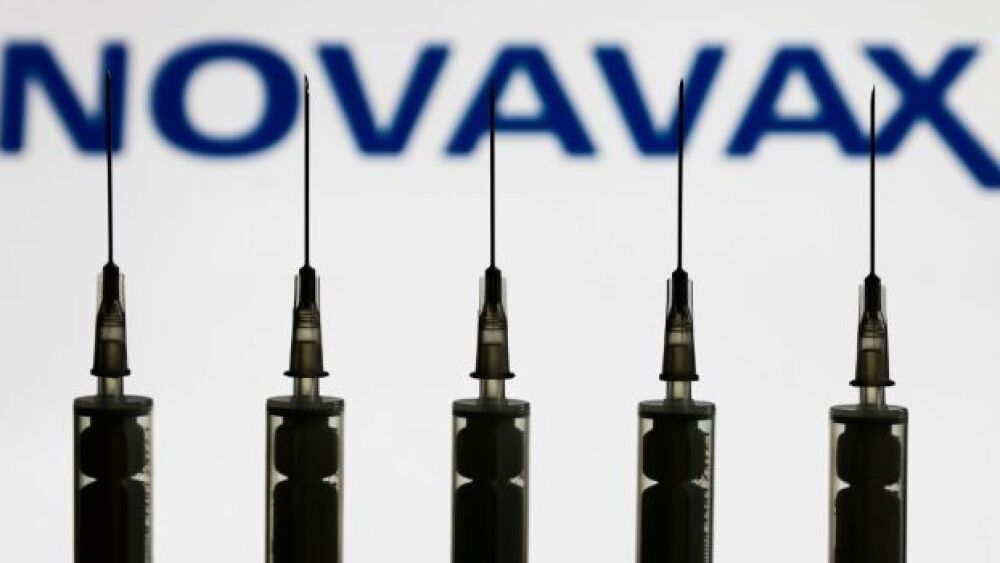The study also found the vaccine was 100% effective at preventing moderate and severe disease.
Jakub Porzycki/NurPhoto via Getty Images
Novavax announced today its recombinant protein-based COVID-19 vaccine has an overall 90.4% efficacy at preventing COVID-19 in adults, according to results of a pivotal Phase III trial. The study also found the vaccine was 100% effective at preventing moderate and severe disease.
The company’s late-stage PREVENT-19 (the PRE-fusion protein subunit Vaccine Efficacy Novavax Trial | COVID-19) included 29,960 participants across 119 study sites in the U.S. and Mexico. Researchers evaluated the efficacy, safety and immunogenicity of the vaccine, making sure they focused on recruiting a sizeable population comprising certain communities and demographic groups who have been most affected by COVID-19.
In the randomized-controlled trial, Novavax’s COVID-19 vaccine, dubbed NVX-CoV2373, had an overall efficacy of 90.4% for preventing COVID-19. 77 COVID-19 cases were observed overall, including 63 in the placebo arm and 14 in the active vaccine group. In the vaccine group, all COVID-19 cases were mild.
Up to 10 moderate and four severe disease cases were observed during the trial, but all were reported in the vaccine group. This latter finding showed the vaccine had a 100% efficacy for preventing moderate or severe COVID-19.
The PREVENT-19 trial’s efficacy endpoints were accrued during the first half of the year, a period when the U.K. SARS-CoV-2 variant was the most prominent strain in the U.S. Additional strains were also circulating and on the risk during the trial’s endpoint accrual period.
Overall, the study met its key secondary endpoint, showing NVX-CoV2373 was 100% effective at protecting against variants not considered variants of interest (VoI) and variants of concern (VoC). Of the 54 sequenced COVID-19 cases, approximately 65% were VoC, while 17% were VoI and 19% were other variants. The vaccine was 93.2% effective again VoC/VoI. A total of 38 VoC/VoI cases were reported in the placebo arm, while only 6 were in participants who received the vaccine.
“These data show consistent, high levels of efficacy and reaffirm the ability of the vaccine to prevent COVID-19 amid ongoing genetic evolution of the virus,” said Novavax’s President of Research and Development, Gregory M. Glenn, M.D., in a statement. “Our vaccine will be a critical part of the solution to COVID-19 and we are grateful to the study participants and trial staff who made this study possible, as well as our supporters, including the U.S. Government.”
Novavax’s COVID-19 vaccine also demonstrated high levels of efficacy among “high-risk” patients, such as those older than 65 or under 65 with comorbidities or frequent exposure to COVID-19. In this subpopulation, the efficacy of NVX-CoV2373 for protecting against the disease was 91.0%, corresponding to 62 cases of COVID-19 in the placebo arm versus 13 cases in the NVX-CoV2373 group.
The vaccine was generally well-tolerated, according to preliminary safety data. No single adverse event was reported in more than 1% of trial participants, and serious and severe adverse events were roughly equal in both the vaccine and placebo arms.
The most common local symptoms seven days following the first and second doses generally included mild to moderate injection site pain and tenderness, which lasted less than three days. The most frequently reported systemic symptoms included fatigue, headache and muscle pain, all of which lasted less than two days.
“Novavax continues to work with a sense of urgency to complete our regulatory submissions and deliver this vaccine, built on a well understood and proven platform, to a world that is still in great need of vaccines,” said Stanley C. Erck, President and Chief Executive Officer of Novavax.
The company says regulatory authorization filings will begin in the third quarter of this year after the final phases of process qualification and assay validation are completed. Novavax stated it plans to reach a manufacturing capacity of up to 100 million doses per month by the end of this year’s third quarter and up to 150 million doses per month by the end of the year, pending regulatory approvals.
The trial’s placebo-controlled portion is continuing in adolescents aged 12 to 18 years old. So far, this arm has enrolled 2,248 participants.





